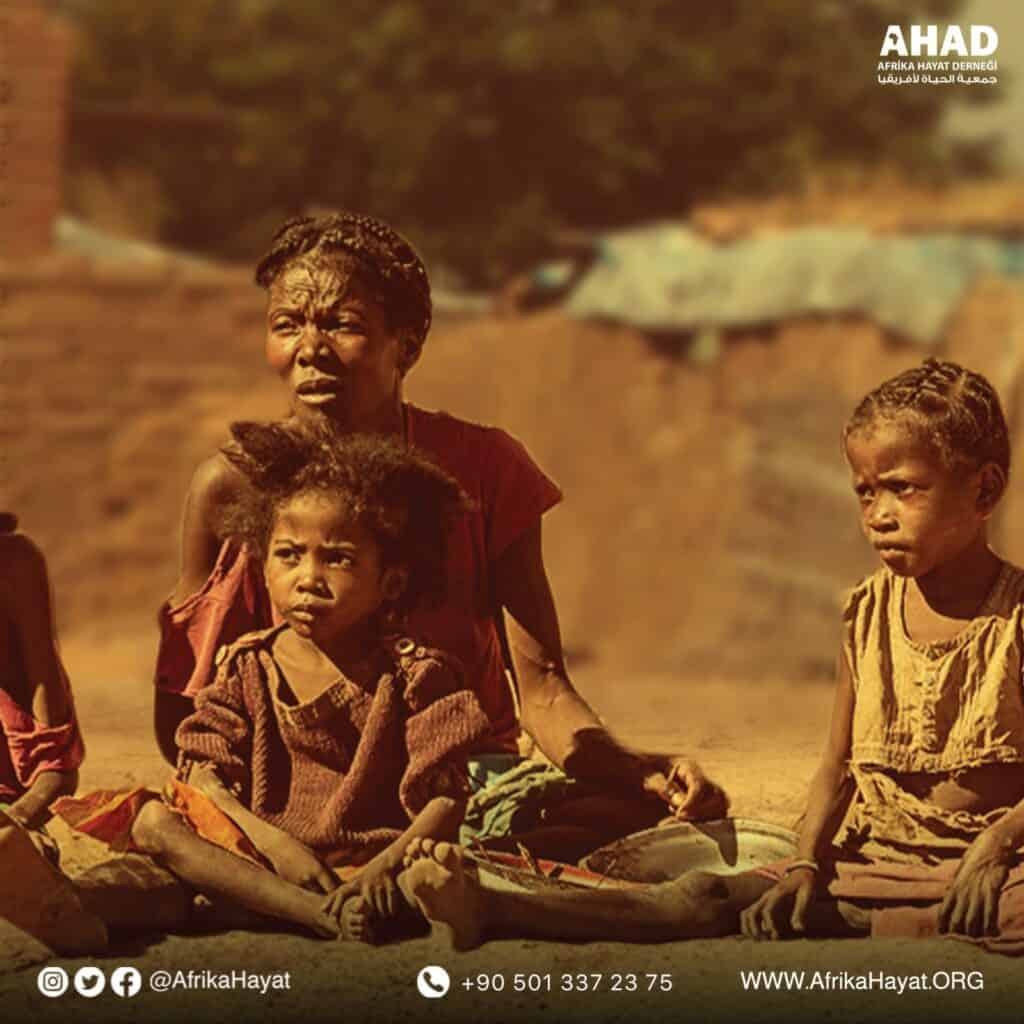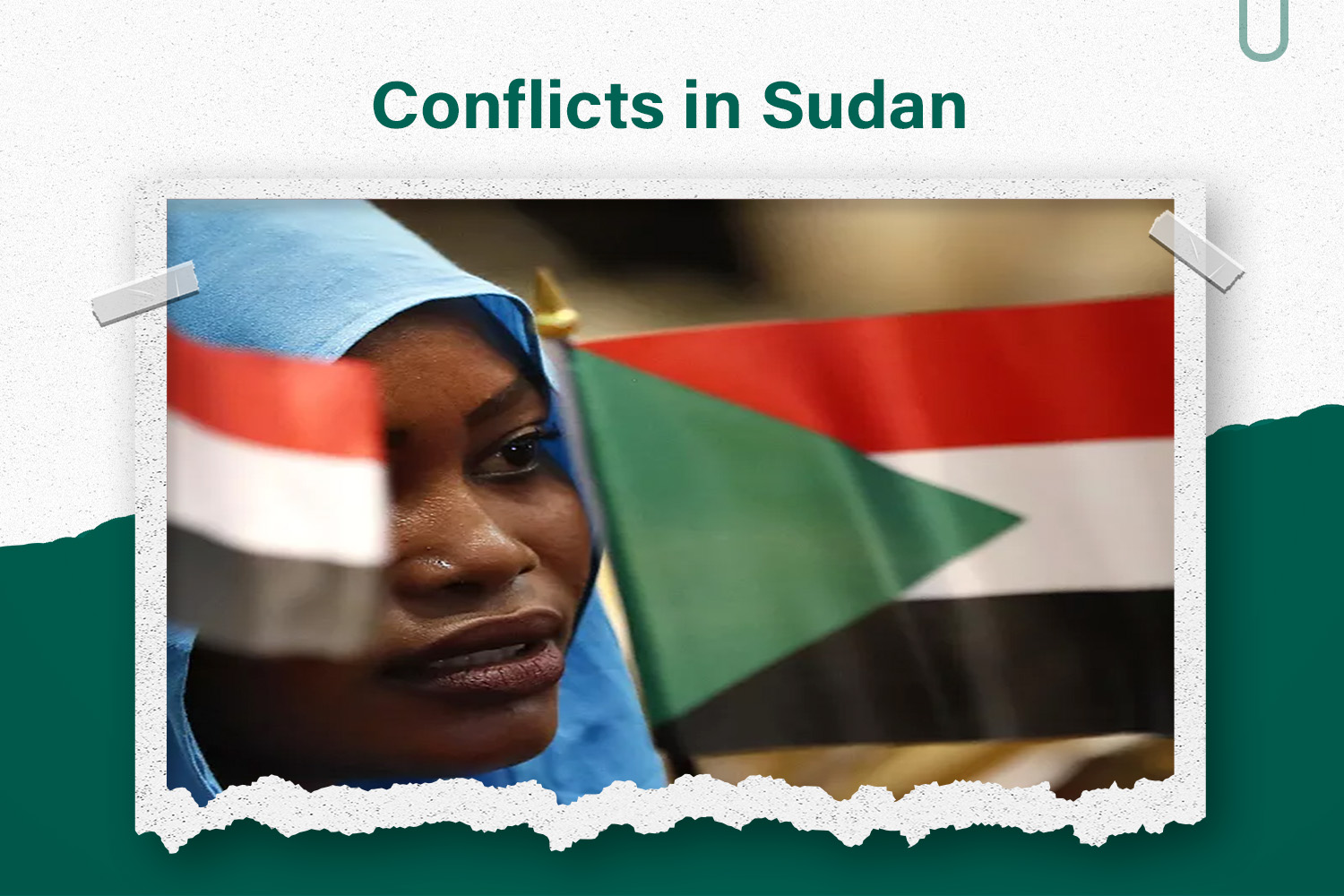Sudan has long been witnessing many armed conflicts and political conflicts that have led to the deterioration of the security and economic conditions in the country. These conflicts and conflicts are one of the main reasons that prompted many of the population to migrate and take refuge in other countries. This article will shed light on the conflicts in Sudan and their impact on the country in general.
What are the conflicts in Sudan
Sudan is host to many conflicts on its territory, including national, ethnic, religious and political ones. National conflicts are centered on racial, sectarian and regional discrimination, while ethnic conflicts are mainly based on antagonism in Origins and ethnic identity. The aggravation of religious conflicts is attributed to the differences between different religious doctrines, their endorsement by the government and the lack of understanding of the social fabric in the country.
The impact of conflicts in Sudan in general
The conflicts in Sudan are causing a deterioration in the security and economic conditions in the country, affecting infrastructure, development, economic and political stability. Multiple conflicts in Sudan have left a lot of victims and caused mass displacement of the population, which negatively affected the social and community life in the country. Sudan continues to suffer from ongoing tensions and conflicts, and it needs international and national efforts to end those conflicts and achieve peace and stability in the country.

Conflicts in Sudan
The Darfur conflict
The Darfur region of Sudan is one of the most vulnerable and turbulent regions of the country, as this territory is experiencing many ongoing conflicts and armed conflicts, which have negatively affected local communities.
History of the conflict in Darfur
The conflict in Darfur dates back to 2003, when a group of rebel groups came out demanding, among other things, a greater share of Natural Resources and equitable development of the region. In the subsequent months and years, other armed groups arose that intensified the conflict in the region.

Conflicts in Sudan
Causes of the conflict and key events
The Darfur conflict is one of the largest armed conflicts in the world, and it has caused great and deep human and material losses, as the events extend to the most prominent causes of the conflict, the problem of ethnic discrimination and arbitrariness practiced against the Sudanese Muslim minority in the region, in addition to the government’s neglect of the region and its marginalization at the economic and social level.
South Sudan conflict
South Sudan is one of the emerging and poor countries in the world, characterized by continuous incidents of armed conflicts that have long affected the local community and destroyed the potential for economic growth.
Establishment of the state of South Sudan
The independence of the state of South Sudan was declared in 2011; the state received significant support from several countries and international organizations. However, the state faces many political, social and economic challenges, which have caused bloody conflicts between the conflicting parties.
The cause of the permanent conflict in South Sudan
South Sudan is plagued by ongoing conflicts between various feuding tribes and political groups, which are affected by poor governance, lack of economic and social development, and ethnic and religious discrimination. Conflicts in South Sudan also arise from political transitions, which lead to the use of violence and force to achieve political goals.
Blue Nile conflict
The importance of the Blue Nile
Egypt and Sudan are among the most important countries that depend on the waters of the Blue Nile, as the water that both countries need to grow crops, generate electricity and preserve biodiversity passes through them. Ethiopia is also one of the most prominent countries wishing to exploit the Nile waters and generate hydroelectric power.
The impact of the conflict on Egypt, Sudan and Ethiopia
The Blue Nile and White Nile dispute has alarmed the countries concerned, as Ethiopia has decided to build the Renaissance Dam to generate electricity, which will affect Egypt and Sudan’s share of Nile water. Due to the lack of agreement between the countries, Egypt and Sudan demanded international intervention and mediation to resolve the conflict. This conflict is the latest in a series of conflicts in the region due to the exploitation of its water resources, which exacerbates the economic and social conditions in those countries.
Popular uprising
The impact of the Sudanese revolution on the country
Sudan witnessed a popular uprising in 2018, following rising prices, a deteriorating economy and socio-political challenges. This uprising led to the overthrow of Sudanese President Omar al-Bashir after a 30-year rule. This uprising is considered a turning point in the history of Sudan, as it resulted in the formation of a transitional government.
The demands of the uprising and the democratic transition
The demands of the popular uprising in Sudan were many and varied, including political freedoms, social and Economic Rights, Accountability and Justice. The uprising aims to achieve democratic transformation in Sudan and build a better future for all. In order to achieve these demands, the demonstrators and the leaders of the revolution are working to reform the political system, improve the economy, promote human rights and access to justice for all groups in society.
Land disputes
Definition of conflicts in Sudan over land
Land disputes are one of the most important socio-economic problems in Sudan, where disagreement over property rights and land use is widespread between individuals and groups. These conflicts caused a deterioration in Intertribal relations, violence, a large number of civilians lost their property and lives.
AHAD is an association working in Africa that believes that resolving land conflicts requires comprehensive efforts and cooperation between the government, civil society and affected groups.
Migration and conflicts
The impact of conflicts in Sudan on migration
Land and social conflicts are one of the most important causes of migration in Sudan. Violence and conflicts between individuals, tribes and groups are driving many people to leave their homes and cities and move to safer areas. Conflicts also affect the economy and make life more difficult in some areas, making people think about emigrating in search of better opportunities.
Displacement affects the affected communities significantly, as they lose qualified individuals and leave behind economic and social vacuums. In return, refugees and displaced persons are received in safe areas and the government and international organizations should provide them with the necessary support.
Therefore, it is necessary to work on resolving conflicts and promoting peace and stability in Sudan in order to reduce migration and improve the living conditions of the population. The government, civil society and affected groups must work together to achieve these goals and secure a better future for all.
Possible solutions to resolve conflicts in Sudan
Discussion of possible steps for settlement
Comprehensive and sustainable solutions to conflicts promise a ceasefire and constructive dialogue between the conflicting parties. The government, civil society and international organizations should strive to resolve the existing conflicts in Sudan by:
Promote dialogue and communication between the conflicting parties through holding sessions and negotiations that achieve stability and peace in the affected areas.
Increase investment in economic development and provide support to communities with limited economic potential to create jobs and improve living conditions.
Improving public services such as education, health and transport, which are considered a mainstay of economic growth and development.
Successful international experiences of conflict resolution
International experiences are a good model for resolving land and community conflicts. The experiences of countries such as South Africa, Indonesia and Uganda are based on the process of peace-building and cooperation between the conflicting parties.
These included a ceasefire and the initiation of a constructive dialogue, the holding of democratic elections, the neutralization of violence and terrorist attacks. Such matters are an integral part of any process of settlement and resolution of disputes.
Therefore, the government, civil society and international organizations should take advantage of successful international experiences and apply them in Sudan in order to achieve peace, stability and improve the living conditions of the population.
Related articles:




